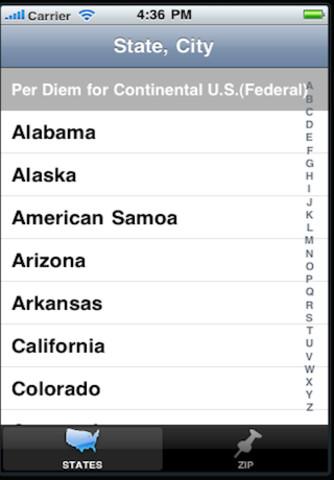According to a report by Bloomberg, the GSA, which manages procurement of more than $70 billion in products and services for US federal agencies, has added Apple's iOS to its approved purchasing list.
The report cited GSA spokesperson Deborah Ruiz as confirming the shift in policy, but didn't indicate when the decision was put into effect. The GSA is the central administrator for federal agencies' spending, and is tasked with minimizing costs and managing suppliers and prices for over 12 millions of products used by more than a million federal employees.
Last August, the GSA released a mobile app for calculating per diem rates for federal employees, and released the app for both BlackBerry devices and Apple's iOS. The agency also developed a native iOS mobile for iOS for public access to its USA.gov site, in addition to providing a general web app.
RIM responded to the news by saying that it "continues to work closely" with its government users, and cited its PlayBook tablet devices as being "the only tablet certified for use by U.S. government agencies."
Last week, however, the U.S. National Oceanic and Atmospheric Administration announced plans to shift from RIM's products and begin issuing its employees iPhone 4 and iPad 2 instead.
NOAA chief information officer Joe Klimavicz cited Apple's devices as being more cost effective to integrate into the agency's current infrastructure than RIM's, which are tied to the company's BlackBerry Enterprise Server, the centralized messaging product and software licensing program that contributes significantly to RIM's revenues.
Last spring, RIM announced plans to extend support for Apple's iOS devices with BES in an apparent move to retain relevance in the enterprise and in government agencies as sales of its BlackBerry devices continued to slip.
Ruiz said the GSA has no plans to join the "bring your own device" trend growing among companies that support employees' own personal devices, but will instead simply add Apple's products to the agency's list of approved devices for government procurement.
The GSA also plans to allow federal purchases of Android devices, although the enterprise in general has avoided enthusiastic adoption of devices running Google's platform due to a lack of robust support for a variety of features that are important to corporate users, including IPSec VPNs, Microsoft's Exchange Server and device administration tools to monitor, manage and police the enforcement of desired policies.
 Daniel Eran Dilger
Daniel Eran Dilger








-m.jpg)






 Charles Martin
Charles Martin
 Christine McKee
Christine McKee
 Wesley Hilliard
Wesley Hilliard
 Malcolm Owen
Malcolm Owen
 Andrew Orr
Andrew Orr
 William Gallagher
William Gallagher
 Sponsored Content
Sponsored Content







24 Comments
Won't all these big businesses and administrations have egg on their face when they have to switch back to Android at the end of this year when Apple's marketshare goes down to 2%¡
Gee, I'll bet AppleInsider won't report on that when it happens¡
Won't all these big businesses and administrations have egg on their face when they have to switch back to Android at the end of this year when Apple's marketshare goes down to 2%¡
Gee, I'll bet AppleInsider won't report on that when it happens¡
Was there any mention of Android in the article? No. So why start something out of nothing and watch the thread go in the crapper. Great for Apple, bad bad for RIM is all need be said.
I wonder if we'll see President Obama switch from BB to iPhone.
The people of the US should be pleased that Apple is bringing all this business back to the USA.
Won't all these big businesses and administrations have egg on their face when they have to switch back to Android at the end of this year when Apple's marketshare goes down to 2%¡
Gee, I'll bet AppleInsider won't report on that when it happens¡
I see that you post a lot ... I would help us all if you were supportive of reality.